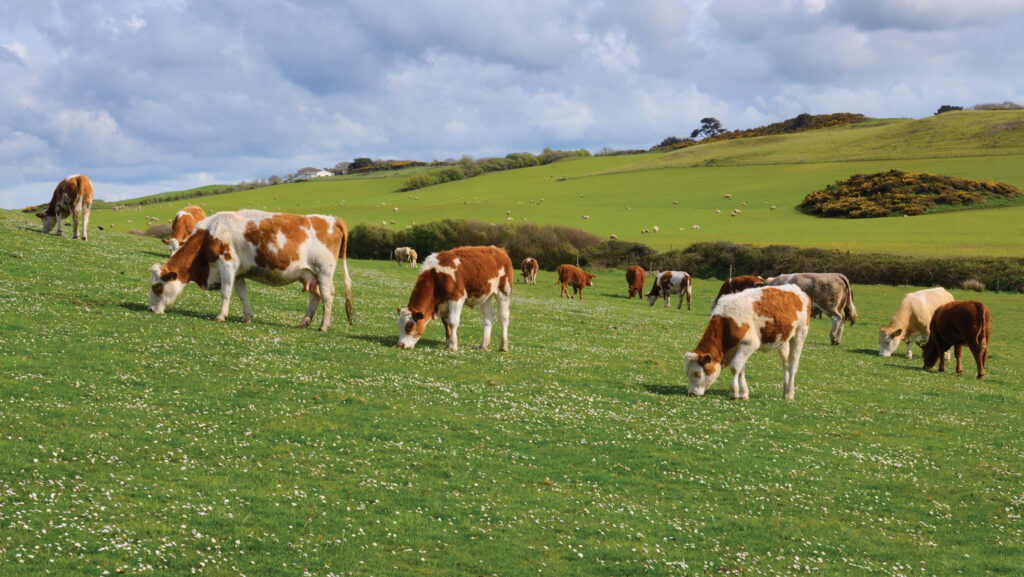UK food standards torn between EU and US demands
 © Craig Joiner Photography/Alamy Stock Photo
© Craig Joiner Photography/Alamy Stock Photo The UK government is grappling with a deepening trade dilemma: whether to strengthen ties with the EU by aligning with its strict food and farming standards, or pursue a free-trade deal with the US.
A deal with the US is an attractive prospect for prime minister Sir Keir Starmer, as it could reduce tariffs on major UK exports such as cars, pharmaceuticals, and food – potentially delivering an economic boost and reinforcing transatlantic trade ties.
However, tensions over the future of British agriculture came to a head this week as chancellor Rachel Reeves travelled to Washington DC for trade talks.
See also: How US trade tariffs will affect UK farming sectors
The Country Land and Business Association (CLA) warned the government against compromising UK farming standards in pursuit of a deal with Donald Trump’s America.
“Letting in cheap food that’s illegal to produce here isn’t trade – it’s betrayal,” said CLA president Victoria Vyvyan.
“It undermines the very standards we ask our farmers to uphold, while piling pressure on businesses already struggling with rising costs and punitive taxes.”
At the heart of the issue lies food safety and animal welfare standards.
Aligning with the EU’s strict sanitary and phytosanitary (SPS) rules would ease post-Brexit trade and boost UK agricultural exports – but likely block a comprehensive trade deal with the US, which demands access for banned products such as hormone-treated beef and chlorine-washed chicken.
NFU president Tom Bradshaw has welcomed UK-US talks but warned: “Future deals must protect British farmers, uphold standards, and avoid repeating the mistakes of past agreements.”
Conflicting priorities
Trade experts agree that the UK cannot please both sides.
David Henig, UK director at the think-tank European Centre for International Political Economy, put it plainly.
“You can’t promise full SPS alignment with Brussels and then offer Washington something that contradicts it,” he said.
A former UK government trade official, Mr Henig added that “from everything I hear, it seems the UK has decided in favour of the EU over the US on food standards”.
Independent agricultural economist Dr Sean Rickard was even more candid. “If it comes down to a choice between Europe and America, we’d be absolutely bonkers to choose the US,” he said.
“Any successful future for British agriculture must be based on quality and standards – not a race to the bottom on cost.”
Alistair Carmichael MP, chairman of the Environment, Food and Rural Affairs Committee, echoed these concerns.
He warned that undercutting British farmers to strike a “thin trade agreement” with the US could spark a widespread backlash.
“The protests over inheritance tax may look like a storm in a teacup by comparison,” he said.
‘Maintain standards’
Public opinion appears firmly on the side of maintaining existing standards. A 2024 OnePoll survey found that 87% of the British public believe trade deals should ensure animal welfare standards in food-importing countries match those in the UK.
Despite this, Reform UK leader Nigel Farage supports allowing US chlorine-washed chicken into the UK, provided it is clearly labelled.
He argues that British consumers already buy chlorinated lettuce and should be allowed to make informed choices.
A UK government spokesperson said: “Reducing trade barriers for our businesses is vitally important, which is why we are seeking better trading relations with partners across the world – getting a better deal with the EU alongside a new economic deal with the US.
“We will only sign trade agreements which align with the UK’s national interests and will not lower our high food standards.”
